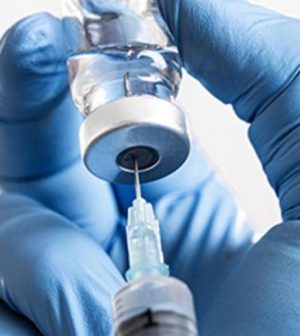- 10 Strategies to Overcome Insomnia
- Could Artificial Sweeteners Be Aging the Brain Faster?
- Techniques for Soothing Your Nervous System
- Does the Water in Your House Smell Funny? Here’s Why
- Can a Daily Dose of Apple Cider Vinegar Actually Aid Weight Loss?
- 6 Health Beverages That Can Actually Spike Your Blood Sugar
- Treatment Options for Social Anxiety Disorder
- Understanding the Connection Between Anxiety and Depression
- How Daily Prunes Can Influence Cholesterol and Inflammation
- When to Take B12 for Better Absorption and Energy
Pfizer or Moderna? Head-to-Head Study Shows One Shot Has an Edge

Which coronavirus vaccine is best at beating COVID-19 — Moderna or Pfizer?
New research hands that honor to Moderna: In what is billed as the first head-to-head comparison of the two shots, researchers analyzed the health records of nearly 440,000 U.S. veterans who received one of the two vaccines between early January 2021 and mid-May 2021. All were followed for 24 weeks.
While both vaccines were highly effective in preventing infection, hospitalization and death, the Moderna vaccine conferred a 21% lower risk of infection and a 41% lower risk of hospitalization.
“Both vaccines are incredibly effective, with only rare breakthrough cases,” said research team member Dr. J.P. Casas, an epidemiologist and associate professor with Brigham and Women’s Hospital and Harvard Medical School. He is also executive director of the U.S. Department of Veterans Affairs (VA) Million Veteran Program for genetics and health research.
“But regardless of the predominant strain — Alpha earlier and then Delta later — Moderna was shown to be slightly more effective,” Casas noted in a VA news release.
The infection rate during the follow-up period was 4.52 per 1,000 in the Moderna vaccine group and 5.75 per 1,000 in the Pfizer group. Those in the Pfizer group also had higher rates of symptomatic COVID-19 (0.44 more per 1,000), hospitalization (0.55 more per 1,000), ICU admission (0.10 more per 1,000), and death (0.02 more per 1,000) than those in the Moderna group.
An additional phase of the study covering the period when Delta was the main strain in the United States showed that the risk of infection was still higher among those in the Pfizer group (6.54 more per 1,000) than in the Moderna group.
The findings were published Dec. 1 in the New England Journal of Medicine.
“Given the high effectiveness of both the Moderna and Pfizer vaccines, confirmed by our study, either one is recommended to any individual offered a choice between the two,” said study first author Barbra Dickerman, an epidemiology instructor at the Harvard T.H. Chan School of Public Health.
“However, while the estimated differences in effectiveness were small on an absolute scale, they may be meaningful when considering the large population scale at which these vaccines are deployed. This information may be helpful for larger decision-making bodies,” Dickerman said in the release.
Further evaluation of the two vaccines’ effectiveness and safety is needed, but given “the high effectiveness and safety profile of both mRNA vaccines, either one is strongly recommended,” the researchers concluded.
Previous randomized trials found that the Pfizer vaccine was 95% effective and the Moderna vaccine 94% effective against symptomatic COVID-19 infection, and similar levels of protection were found in real-world use.
More information
The U.S. Centers for Disease Control and Prevention has more on COVID-19 vaccines.
SOURCE: U.S. Department of Veterans Affairs, news release, Dec. 1, 2021
Source: HealthDay
Copyright © 2026 HealthDay. All rights reserved.










